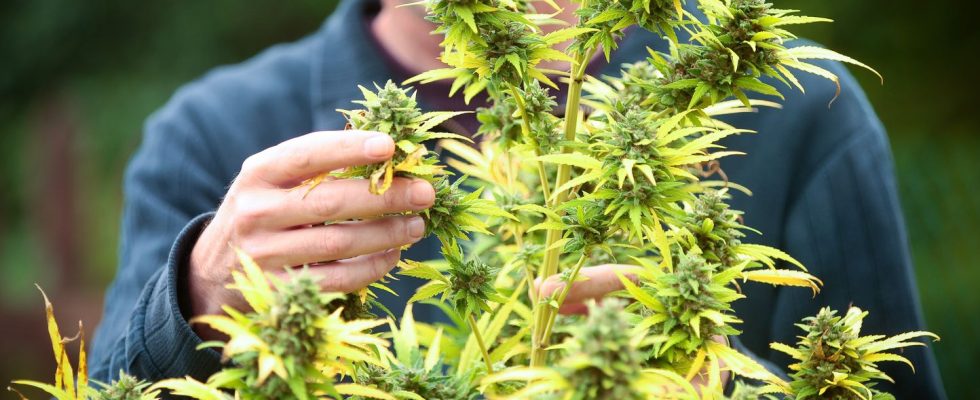On the one hand, there is this Tuesday, April 2 in Strasbourg this operation “Place net XXL” carried out by the police and gendarmerie forces to fight against drug trafficking. On the other, the announcement from the environmentalist mayor Jeanne Barseghian who, through the media, calls for the establishment of a local “experiment” of legalization to move away from a repressive French approach with “inconclusive” results. “.
A desire which is expressed while Germany has just authorized, since Monday, the consumption and cultivation of cannabis. Which, to cite only the town of Kehl, a German town bordering Strasbourg, may raise questions about the practices authorized on both sides of the Rhine. Many Strasbourg residents live, work and trade in this border town, which shares the same transport network, notably the tram.
A common living area
“In a common living area, we are going to have two different regulations, almost diametrically opposed, between Germany, authorizing the recreational consumption of cannabis, and France, presenting one of the most repressive legislations in Europe,” argues the mayor. “Obviously, it raises questions, and it will not fail to raise questions among the population,” she said, emphasizing the importance of “permanent flows” passing between the two countries via Strasbourg.
“The fact that a European country like Germany, committed to public order and public health, decides to change its legislation clearly shows that a purely repressive policy did not seem satisfactory or effective,” continues Jeanne Barseghian. “In my opinion, this should provide food for thought” on French political choices in this area.
A call which did not fail to provoke a reaction from many opposition elected officials, who see it as “a signal of tolerance or even leniency in the face of cannabis dealers present in the neighborhoods”. But also the desire of the environmentalist mayor to want to “create a buzz with weed”.
“No coffee shop”
To support her claims, the environmentalist mayor, however, cites figures from the European Observatory for Drugs and Drug Addiction according to which 47.3% of French adults say they have already used cannabis, a figure higher than any other EU countries. France has 5 million cannabis users, according to the French Drug Observatory. “As mayor of a large city, I am confronted on a daily basis with questions from residents who are legitimately concerned about persistent trafficking and which generate feelings of insecurity, even delinquency and a parallel economy,” assures the elected.
Legalization allows people residing in Germany for at least six months to grow up to three plants at home for their own use, or to obtain up to 50 grams of dried cannabis per month from the new “Cannabis Clubs”, non-profit associations. “This will remain very regulated, much less permissive than what we can observe in the Netherlands,” anticipates Jeanne Barseghian.
“These clubs will not be places of consumption, there will be no coffee shop,” she insists. Interested in this “cautious approach”, the town hall will “observe what will happen in Germany, what this legislation will generate in terms of uses, security policy, reduction – or not – in traffic, public health “.
Strasbourg, “pioneer” city?
“It would seem interesting to me to open an experiment on a local cross-border scale, which would allow testing in Strasbourg what will be implemented on the German side,” says the mayor. The councilor defends this idea by highlighting “experience” and local know-how in terms of prevention and support for drug users, Strasbourg and Paris being the only two cities in France to have consumption rooms at lower risk.
However, the decision to set up such an experiment is not the responsibility of the municipalities. Jeanne Barseghian hopes to find support from national authorities and intends to rely on the Treaty of Aix-la-Chapelle, signed in 2019 between France and Germany, which authorizes “exemptions” for “the realization of cross-border projects “, particularly in “health” matters.

